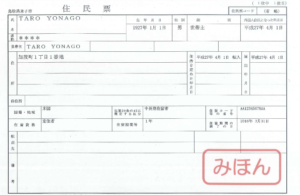

Hello, dear readers and investors!
As a real estate agent based in Tokyo, I have the privilege of assisting numerous foreign investors
in navigating the intricacies of the Japanese property market.
Today, I’d like to share some insights on a critical aspect of real estate transactions in Japan
– the extension of settlement dates and loan cancellation dates in sales contracts.
This topic is particularly relevant for those planning to finance their property purchase through a housing loan.
In the realm of real estate transactions, it’s common for buyers to finance their purchases through housing loans. In Japan,
when a buyer opts for a housing loan, a specific clause, known as the housing loan clause (or loan cancellation clause),
is typically included in the sales contract.
This clause provides a safety net for buyers,
allowing them to cancel the contract if they fail to secure loan approval from their financial institution.
Now, let’s consider a scenario where the buyer’s financial arrangements are delayed,
leading to an agreed extension of the settlement date (the payment date) with the seller.
A question that often arises in such situations is – does the extension of the settlement date also imply an extension of the loan cancellation date?
The answer, in short, is no.
Unless there’s a clear agreement with the seller to extend the loan cancellation date,
it’s not automatically extended with the settlement date.
This is an important point to note for all investors,
as it can significantly impact the course of your property purchase.
In the event of a delay in the settlement date, it’s crucial to have a clear agreement between the buyer and seller.
This agreement should be documented in a memorandum of change (or extension) of the settlement date.
If the buyer hasn’t secured loan approval yet,
it’s also advisable to exchange a memorandum of extension of the cancellation date accompanying the loan clause.

Insight:
Understanding the nuances of these clauses and their implications
can save investors from potential disputes and financial losses.
As foreign investors, it’s crucial to familiarize yourself with these aspects
of Japanese real estate transactions to ensure a smooth and successful investment journey.
If you’re a foreign investor looking to explore the real estate market in Japan,
don’t hesitate to reach out to us.
Our team of experienced agents is ready to guide you through every step of the process,
ensuring you make informed decisions that align with your investment goals.
Contact us today to start your real estate journey in Japan!
Remember, knowledge is power, and in real estate,
it’s your key to a successful investment.
Stay tuned to our blog for more insights and updates on the Japanese real estate market.
Happy investing!
*
There are two types of contract cancellations due to the housing loan clause: “Cancellation Condition Type” (解除条件型)
and “Cancellation Right Reservation Type”(解除権留保型)
The “Cancellation Condition Type” is when the contract is cancelled automatically without any relation to the buyer’s intention
if loan approval from the housing loan institution is not obtained by the separately agreed cancellation date.
Even if loan approval is not obtained from the financial institution,
if the buyer can afford the funds separately and is expected to be able to settle,
the buyer can choose not to cancel the contract,
and can also indicate an intention to cancel by the cancellation date.
This is the “Cancellation Right Reservation Type”.
The buyer decides whether to perform the contract or exercise the cancellation right.
In the case of regular real estate transactions, the housing loan clause is often the
“Cancellation Right Reservation Type”.
Even if loan approval is not obtained from the financial institution by the cancellation date,
it is considered that the loan is certain if it is in the middle of an examination,
or if it is possible to receive a loan from a financial institution other than the initial loan application financial institution,
or if funds can be obtained from elsewhere, it is considered that the contract may not be cancelled.
Unscrupulous agents frequently (and intentionally) neglect to clarify the distinction between the two types.
In the case of the ‘Cancellation Right Reservation Type’,
the buyer is required to formally declare their intention to cancel in writing.
Failure to do so could result in the buyer forfeiting their down payment and
potentially facing penalties for the cancellation.
Source: 売買契約における決済期限の延長合意に伴い、融資特約に定めた融資解除期日も延長されるか。
(The Real Estate Transaction Promotion Center)

Toshihiko Yamamoto
Real estate investing consultant and author.
Founder of Yamamoto Property Advisory in Tokyo.
International property Investment consultant and licensed
real estate broker (Japan).
He serves the foreign companies and individuals to buy and sell
the real estates in Japan as well as own homes.
He holds a Bachelor’s degree in Economics from
Osaka Prefecture University in Japan
and an MBA from Bond University in Australia
Toshihiko’s book, “The Savvy Foreign Investor’s Guide to Japanese Properties: How to Expertly Buy, Manage and Sell Real Estate in Japan” is now out on Amazon, iBooks (iTunes, Apple) and Google Play.
About the book
Amazon.com Link

